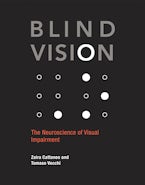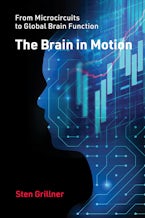About Face...is, I believe, a truly important book, which could do much to counteract the extremes of sociobiological reductionism.
John Cornwell
Sunday Times (UK)
This is a highly readable, useful, and interesting book filled with many thought-provoking discussions and ideas. It could become a classic reference text for those of us interested in the face and facial expression as researchers, psychiatrists, neurologists, or simply as human beings.
Nancy Etcoff, Ph.D., Massachusetts General Hospital and Harvard Medical School
Cole has a remarkable ability to be objective and scholarly and at the same time personal and caring with regard to the subjects who reveal themselves in this book. About Face is also exceptional in the fact that it is at once focused and comprehensive—it provides a well-defined portrait of the face, yet the scope of Cole's examination extends from evolutionary issues, to neonate behavior, to extraordinary pathologies, and to the dynamics of social communication, as well as to philosophical and ethical concerns. Despite the breadth, Cole manages to dig deeply, to explore important implications, and to raise profound questions.
Shaun Gallagher, Professor of Philosophy, Canisius College
What is a face? Why do we have faces? What is it to 'face' another person? Or, literally, to lose face, to be faceless, or de-faced? As a physician and neurologist, Jonathan Cole considers every aspect of the human face—its evolution; its exquisite delicacy of musculature and neural control; its capacity to transmit every feeling, intention, mood, state of mind; its crucial role in making contact, establishing identity and relationships; and the dire effects if any of these are defective or break down. About Face is a remarkable book, the first comprehensive exploration of the face, and a fascinating one, which combines the clinical and the human, the biological and the cultural, in an altogether original way.
Oliver Sacks
Jonathan Cole attacks the problem about what is special about the face, and what happensin different neurological conditions when expression or comprehension of the face is unavailable. He conveys something about the first hand experience of what it is like to have autism, visual impairment, or Moebius syndrome, for example, through excerpts or interviews with sufferers. This is a fascinating book, which I think will grab the reader via its unusual style.
Simon Baron-Cohen, Lecturer in Psychopathology, Departments of Experimental Psychology and Psychiatry, University of Cambridge
By providing case studies of people who for one reason or another have problems with facial expression, About Face raises a flood of questions about the role of face in our knowledge of other minds. It is suggestive and stimulating about fresh lines of inquiry for anyone interested in, broadly, 'the problem of other minds'. It is not just reading for specialists, though. The book is light and easy to read. And you would have to be inhuman not to be moved by some of the stories it tells.
John Campbell, New College, Oxford
This is a fascinating work, on a topic to which anyone interested in human behaviour will relate. Dr. Cole has assembled an extraordinary array of stories illustrating literally how we face the world. This is both a very erudite work, and an immensely readable and enjoyable one. It will certainly give neurologists cause to reflect on much that they see, but the topic goes far beyond any interest in neurology and psychology, and reaches into some of the deepest and most perplexing problems of human communication. The magic of this book is that it does so with an extraordinarily light and entertaining touch. It should become a classic at the very 'interace' between real human experiences and the theoretical and emotional responses we construct to give them some sort of order.
Nigel Leigh, Department of Clinical Neurosciences, Institute of Psychiatry
A thoughtful and rich book about the human face, written from an unusual perspective.
Antonio R. Damasio, author of Descartes' Error; M.W. Van Allen Professor and Head, Department of Neurology, University of Iowa College of Medicine

Honorable Mention in the category of Psychology in the Professional/Scholarly Publishing Annual Awards Competition presented by the Association of American Publishers, Inc.











